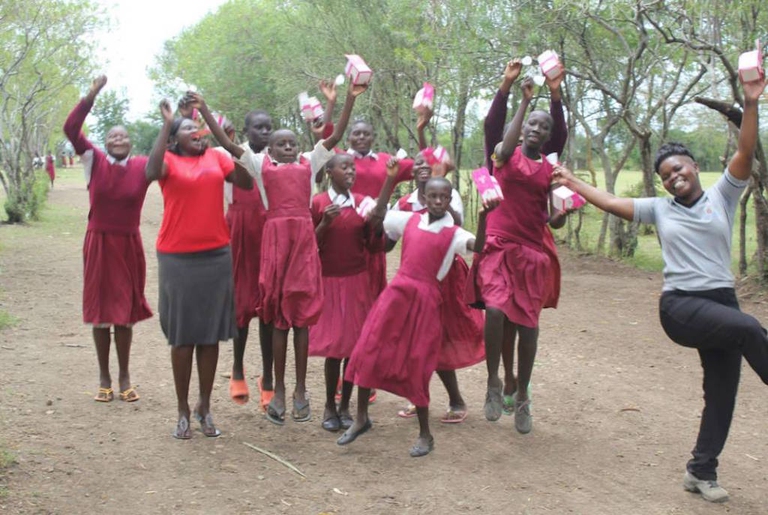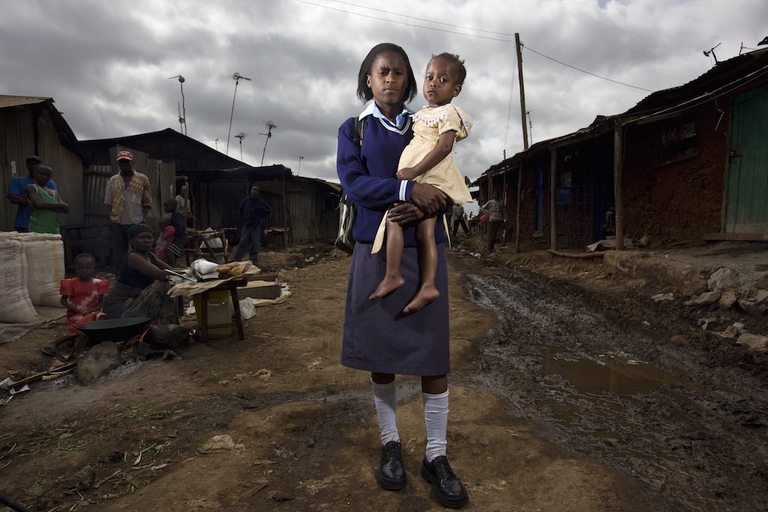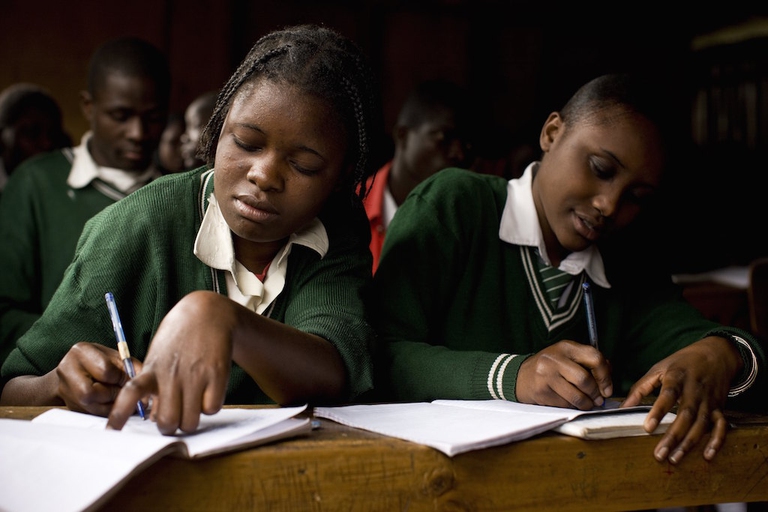Many women find their periods an annoyance. This discomfort is particularly severe for the countless women in developing countries who lack access to menstrual hygiene products. This stops them from going to work, school and respecting their normal daily routine for around 20% of their adult lives. This situation is made worse by
Many women find their periods an annoyance. This discomfort is particularly severe for the countless women in developing countries who lack access to menstrual hygiene products. This stops them from going to work, school and respecting their normal daily routine for around 20% of their adult lives.
![The Nike Foundation For Girls]()
This situation is made worse by lack of access to facilities that stop people from coming into contact with their waste matter, known as “improved sanitation”. This affects 2.5 billion people globally, hitting women and young girls particularly hard, especially when they’re menstruating.
It is estimated that the limited availability of products and facilities for managing periods safely causes girls to miss up to 20% of school time each year because they’re afraid and ashamed of staining their clothes when on their cycle. For example, 30% of girls in Uganda miss at least four days of school a month because of this. UNICEF believes these absences cause some girls to drop out of school entirely. In the words of Jyoti Sanghera, a Chief Officer at the UN Human Rights Office:
“Stigma around menstruation and menstrual hygiene is a violation of several human rights, most importantly of the right to human dignity.”
Interviews with women and girls have revealed that, in the absence of other options, many end up using unhealthy menstrual ‘solutions’ like rags, old newspaper, bark or reusing disposable pads – making them vulnerable to infections.
![The Nike Foundation For Girls]()
Tackling this problem by supplying sanitary pads, though helpful, isn’t enough. It is almost impossible to ensure that a girl or woman gets an adequate amount of pads every day of her period for over 30 years. And the environmental impact is devastating: it is estimated that each woman uses around 12,000 disposable pads or tampons in a lifetime, adding to the already disproportionate amounts of waste in the world.
Ruby Cup offers a sustainable alternative. It is a long lasting, eco-friendly menstrual cup made of 100% medical grade silicone. Since one cup lasts for 10 years, it eliminates both the waste and cost of purchasing disposable products over and over again. A thirteen-year-old girl receiving a Ruby Cup can finish primary school and go through secondary school without having to worry where the next pack of pads will come from.
Through the Buy One Give One scheme, a schoolgirl in Kenya or Tanzania receives a Ruby Cup for every one sold online.

Ruby Cup is distributed through its partners Golden Girls Foundation, a Kenyan NGO empowering women and girls, and Femme International, a Canadian organisation tackling sexual health and feminine hygiene in Kenya and Tanzania.
Ruby Cup also teaches girls about female anatomy and menstrual hygiene in order to tackle silence and shame around menstruation. Education and breaking taboos are as important as providing sustainable, high-quality menstrual hygiene solutions: if girls experience their periods as something natural and healthy they’re free to lead regular lives all month long.
https://youtu.be/W8laI4oet8k
This is why Ruby Cup’s mission is to help meet every girls’ right to manage their menstruation in privacy, safety and with dignity. Their stories deserve to be told: #TheAfricaTheMediaNeverShowsYou, the hashtag created by young Africans, offers us a new venue to do just that.
Siamo anche su WhatsApp.
Segui il canale ufficiale LifeGate per restare aggiornata, aggiornato sulle ultime notizie e sulle nostre attività.

Quest'opera è distribuita con Licenza Creative Commons Attribuzione - Non commerciale - Non opere derivate 4.0 Internazionale.











